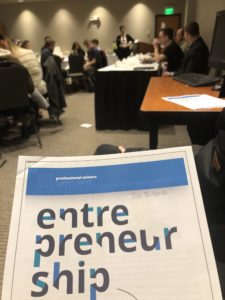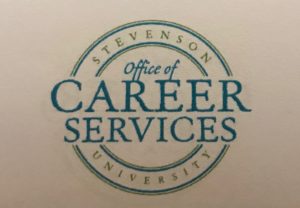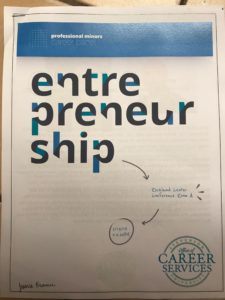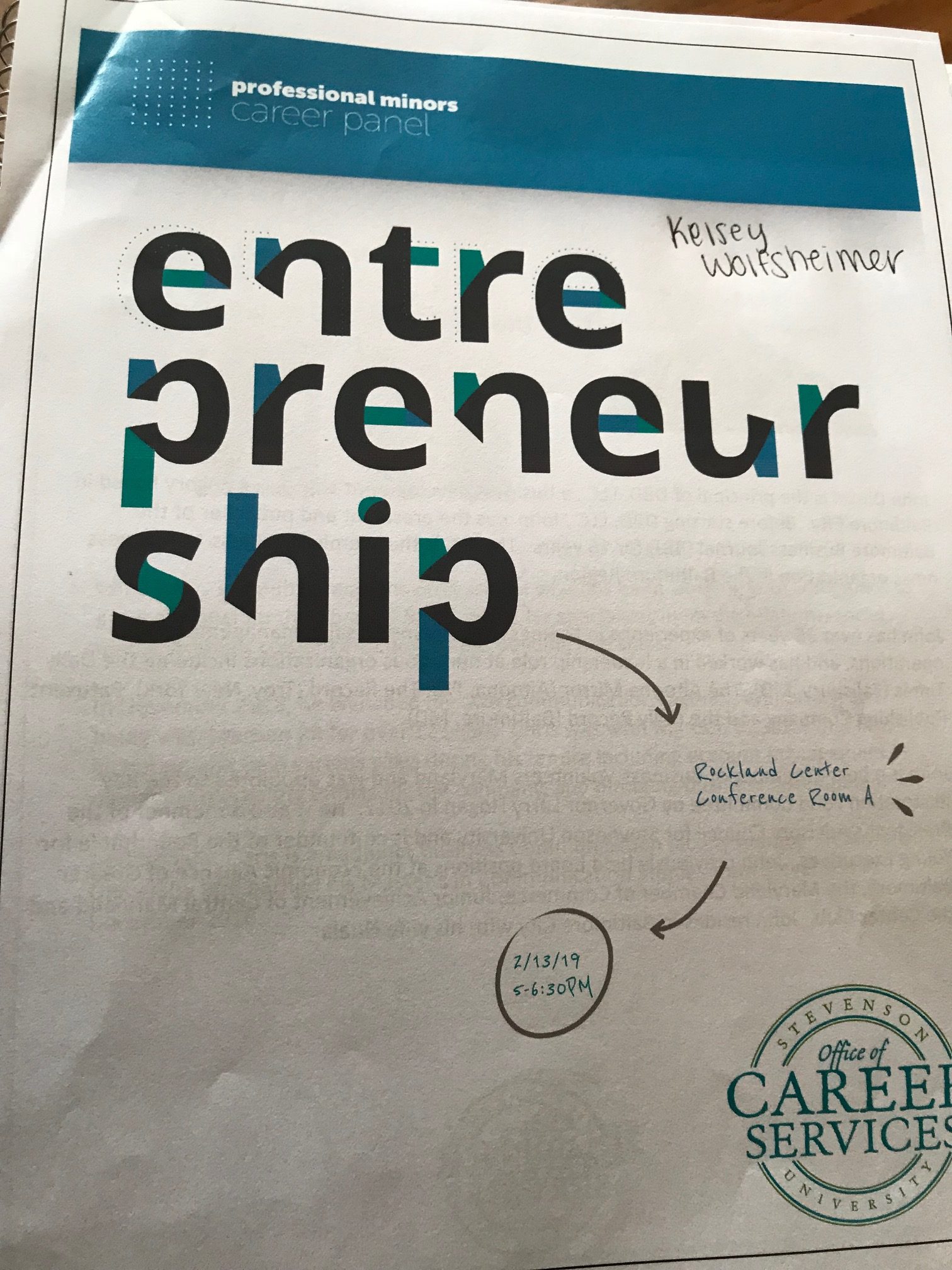As I sat in a crowded room full of future entrepreneurs, we all looked at the panel of current entrepreneurs, ready to learn as much as we possibly could in an hour and a half. After the panelists, such as Chris Daley, who is a professor here at Stevenson, provided some background information about themselves and their businesses, the more specific questions started being asked. There were several inspirational stories about how they first started thinking about being entrepreneurs, such as one quote that, “If you can make a dollar on every t-shirt, all you have to do is sell a million t-shirts to make a million dollars.” The entrepreneurs were knowledgeable, personable, and had many life stories to share with us. They were willing to answer any questions we had to help us to prepare better for our future. Consistently, they all spoke of experiences when they saw employers or others doing something that they believed they could do better. These situations motivated them to become entrepreneurs. One of the panelists, who worked for Enterprise, spoke of how she began in sales and was doing so well that a promotion would have caused her a pay cut. This made her pursue a higher position and take over a branch for herself. They cautioned that one should, “always have two forms of income,” in case the tides turned against you. Networking was a key aspect that they emphasized in everything they did, as well as running their potential ideas by other entrepreneurs to see what their thoughts on the idea were before pursuing it. Perseverance and being relentless was a common mentality that they discussed as being key in the realm of entrepreneurship.
In relation to my career goals, I am not interested in becoming an entrepreneur. Although, I do believe a majority of what was shared can be applied to my future work. It is always important to take advantage of opportunities like this because individuals that are in the work force are a valuable resource.
 Frog Publishing, Elizabeth Trimm who is branch manager at Enterprise Rent-A-Car, Andy Brown who is founder and CEO of Eat Pizza, and Garrett Pfeifer who inherited his fathers business Maryland Brand Management. All of these entrepreneurs have built their own brands from the ground up and each told a significant story of how they got into entrepreneurship. Many of thir stories included timing in life and knowing that they could do so much more than their bosses. The one that stood out to me the most was Garrett Pfeifer who inherited the family business from his father. Maryland Brand Management is a company that creates designs for clothing like shirts, hats, leggings, and polo’s He told the story of how his father started the business, he would go to every Ravens game and would sell shirts during the tailgates doing his best to make money and get the brand out while. His friends would always tell him to give up and just enjoy the tailgate with them but his father pushed through and followed his dream. This is where Garrett got his inspiration, his father told him that if he continued to sell shirts for $1 it would only take selling 1,000,000 shirts to make $1,000,000 dollars. Along with telling their stories they each gave the audience three words of advice. The words of advice they gave included:
Frog Publishing, Elizabeth Trimm who is branch manager at Enterprise Rent-A-Car, Andy Brown who is founder and CEO of Eat Pizza, and Garrett Pfeifer who inherited his fathers business Maryland Brand Management. All of these entrepreneurs have built their own brands from the ground up and each told a significant story of how they got into entrepreneurship. Many of thir stories included timing in life and knowing that they could do so much more than their bosses. The one that stood out to me the most was Garrett Pfeifer who inherited the family business from his father. Maryland Brand Management is a company that creates designs for clothing like shirts, hats, leggings, and polo’s He told the story of how his father started the business, he would go to every Ravens game and would sell shirts during the tailgates doing his best to make money and get the brand out while. His friends would always tell him to give up and just enjoy the tailgate with them but his father pushed through and followed his dream. This is where Garrett got his inspiration, his father told him that if he continued to sell shirts for $1 it would only take selling 1,000,000 shirts to make $1,000,000 dollars. Along with telling their stories they each gave the audience three words of advice. The words of advice they gave included: The entrepreneurship career panel
The entrepreneurship career panel
